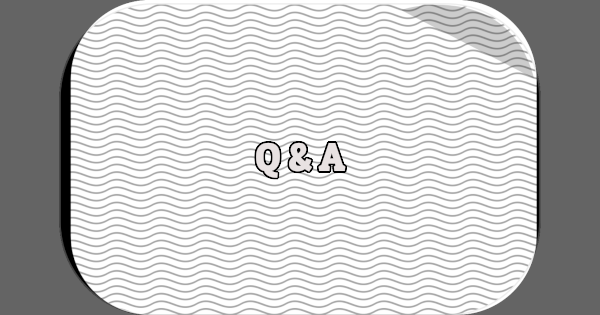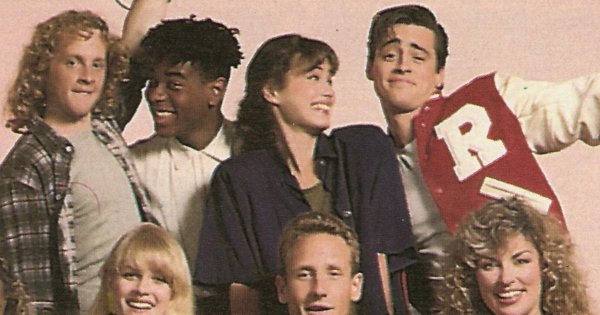I get a lot of e-mails from people asking me about television shows, made-for-TV movies or miniseries they remember from years or decades past. I try to answer each question as best I can. Every now and then I like to dig through my inbox and pull out a few choice e-mails to answer here at Television Obscurities for everyone to read. Keep reading for today’s questions and answers.
Starring the great Dabney Coleman as a talk show host (Bill) in Buffalo, New York. Coleman always plays the absolute best asshole on TV and in the movies. This ran for two half seasons but NBC couldn’t make up their minds and let it die around 1984. All the show’s episodes are being released on a three DVD set this September.
Al
According to the Associated Press, NBC had a difficult time promoting Buffalo Bill because test audiences hated the character of Bill Bittinger, played by Dabney Coleman, so the network decided to play up Bill’s lack of morals, humanity and feelings. The reaction of test audiences, said Brandon Tartikoff, “was not unexpected. In all our conversations about the show, we kept referring to Archie Bunker. But Archie had a wife and daughter, whom he loved. This guy doesn’t even pet his dog” [1].
In order to give the show the best possible chance at succeeding, NBC delayed it from the spring to the summer of 1983 so that it wouldn’t compete with hit shows on ABC and CBS. Said Tartikoff, “this show needs multiple-episode samplings. With such an outrageous, unscrupulous character, viewers might not come back. With reruns in the summertime, there’s less competition” [2]. The series premiered on Wednesday, June 1st.
Critic Tom Shales, writing in The Washington Post, suggested that Buffalo Bill “boasts the most luminous cast seen in a situation comedy since ‘Cheers’ premiere” and praised Coleman’s potrayal, calling him “fun to watch, even creepily fascinating” [3]. But as Tartikoff realized, Bill Bittinger was no Archie Bunker, and to Shales that was a big issue:
Archie Bunker was no hero, but he was able to capture the heart as well as the attention of a nation because there was poignance in his perpetual battle with a changing world, and because stingingly valid points about human nature and social inequity could be made through him. Buffalo Bill exists primarily as a comment on the sort of grandma-stomping ruthlessness found all too frequently in show business. Another show about show business is just what television needs not. [4]
John J. O’Connor of The New York Times was far more positive, stating that the “surprising element in all this silliness is how quickly the characters establish their own special identities and then mesh with one another to form a decidedly promising comedy troupe” [5]. Unlike Shales, O’Connor didn’t have a problem with character of Bill Bittinger, writing that “a towering monument to self-love, Bill is too serious to be anything less than hysterical. And Mr. Coleman manages to bring an array of unexpected colors to his performance” [6].
In July, NBC announced it had renewed Buffalo Bill for an additional thirteen episodes that would likely fill in for the first cancellation of the 1983-1984 season. Tartikoff stated that “only a network that had the same character attributes as Buffalo Bill Bittinger would not renew such a fine comedy as this show” [7]. The series returned in December, this time on Thursdays. Unfortunately, despite being slotted between Cheers and Hill Street Blues, it couldn’t attract viewers and, in fact, was losing many of those who watched Cheers, potentially harming Hill Street Blues.
“We have been satisfied with the production of ‘Buffalo Bill,'” said Brandon Tartikoff, “but we have not been satisfied with the audience levels it has achieved” [8]. For co-executive producer Tom Patchett one problem was NBC’s insistence on a laugh track. According to Patchett “we delivered the first show under-sweetened, but the network was concerned that it lacked presence. NBC re-sweetened it and jacked it up quite a bit and continued to do that for the first 13 episodes. It did seem unnatural and forced” [9].
Pratchett revealed that the network had tested the show with and without a laugh track. “The show tested very poorly without the laugh track, and only poorly with it” [10]. Perhaps because of the laugh track, perhaps because viewers just couldn’t stand Bill Bittinger, Buffalo Bill was officially cancelled when NBC announced its 1984-1985 fall schedule on May 10th [11].
The entire series was released on DVD on September 6th, 2005.
Works Cited:
2 Ibid.
3 Shales, Tom. “‘Buffalo Bill’: NBC’s Boor on the Range.” Washington Post. 1 Jun. 1983: D1.
4 Ibid.
5 O’Connor, John J. “TV: Dabney Coleman Stars in Series.” New York Times. 1 Jun. 1983: C23.
6 Ibid.
7 Associated Press. 18 Jul. 1983: Domestic News, PM Cycle.
8 Rothenberg, Fred. “‘Buffalo Bill’ Doesn’t Need Laugh Tracks; It Needs Viewers.” Associated Press. 21 Mar. 1984: PM Cycle.
9 Ibid.
10 Ibid.
11 Rothenberg, Fred. “NBC’s ‘V’ Series Key to Success Next Season.” Associated Press. 10 May 1984: AM Cycle.






No doubt about it- “BUFFALO BILL” was a great series. But it never “fit in” with Brandon Tartikoff’s vision of “light, airy” NBC sitcoms [mostly aimed at teenagers] that used live audiences or laugh tracks. Not that he didn’t TRY to be innovative: he tried another of co-executive producer Jay Tarses’ comedy series, “THE DAYS AND NIGHTS OF MOLLY DODD” in 1987-’88…but again, it was too “offbeat” for most viewers, eventually flourishing on cable, where audience size and advertiser interest didn’t really matter at that time. “BUFFALO BILL” was guilty of being too far ahead of its time- the next series Dabney Coleman starred in was Tarses’ “THE SLAP MAXWELL STORY” for ABC in 1987…ANOTHER “offbeat” series focusing on another “unpleasant character” that never found a mass audience, and IT vanished after one season.
As for Tom Shales, he can be a “prune” at times….I had intended to say something stronger, but you get my drift.
Television is littered with offbeat shows like these, often saddled with laugh tracks that did more harm than good, given some initial support by the network and then regretfully abandoned when audiences didn’t materialize.
Perhaps the closest thing we have to one of these shows nowadays is 30 Rock, although NBC has stuck by it far longer than I ever expected. It sure wins a lot of Emmy awards.
Remember when CBS couldn’t decide to keep or kill the laugh track for M*A*S*H
I loved Buffalo Bill then and love it today!
I remembered the show following Cheers. I bought the DVDs. Maybe if Bill had a redeeming quality the show would have lasted longer. I liked the show because it was so offbeat. Being a kid growing up in the 60s watching those sugary sweet sitcoms , this was a breath of fresh air.